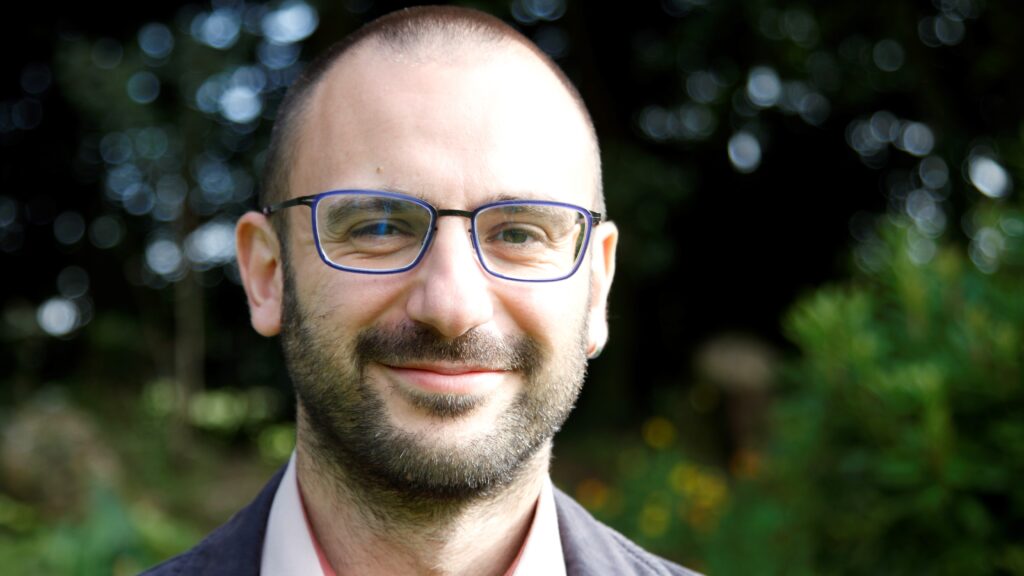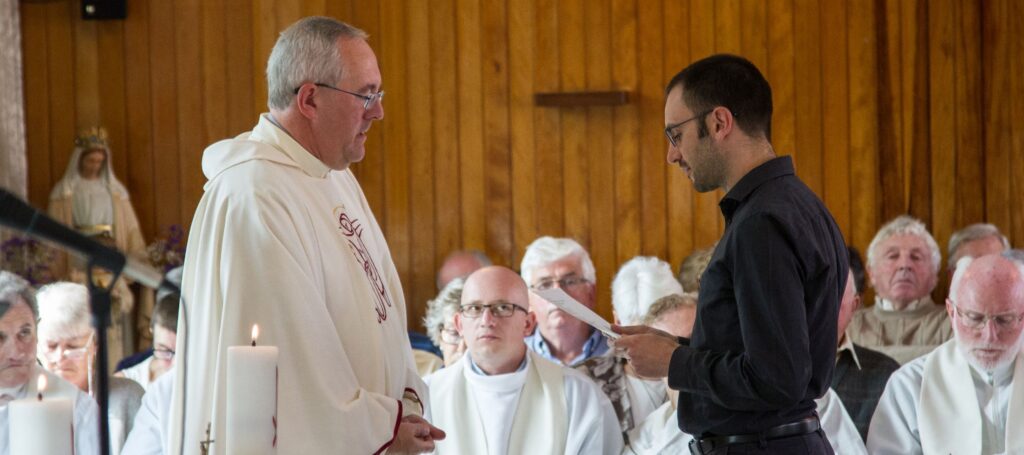Bro Giacomo Gelardi MSC writes on ministering through the COVID-19 pandemic in Killinarden, where long-standing issues such as alcoholism, drug addiction, violence, and abuse have been exacerbated by the past 16 months of lockdowns and regulations. “Killinarden, west Tallaght, Dublin. Some of our missionaries have ministered here for a long time and know the place, with its people and their problems, inside out. People from other parts of the world may have just heard stories about it, as the area infamously and regularly hits the headlines. For those who do not know Killinarden, the concerns encountered here range from material and financial poverty to unemployment; from joyriding around the park to drug dealing around the corner; from people struggling with poor mental health to families shattered by addiction, resulting in the neglect or, worse, the abuse, of children.
“Killinarden, west Tallaght, Dublin. Some of our missionaries have ministered here for a long time and know the place, with its people and their problems, inside out. People from other parts of the world may have just heard stories about it, as the area infamously and regularly hits the headlines. For those who do not know Killinarden, the concerns encountered here range from material and financial poverty to unemployment; from joyriding around the park to drug dealing around the corner; from people struggling with poor mental health to families shattered by addiction, resulting in the neglect or, worse, the abuse, of children.
I have been in pastoral placement in Killinarden for the last four years during my theological studies, and on a daily basis since October 2020. During all this time I have accompanied Patricia Darling, a lay woman who has assisted, supported and advocated for the poorest, the most vulnerable and marginalised people in this community for the past 20 years. With great devotion, she tirelessly carries out a fundamental service. I am deeply indebted to her for all I am learning. The initial and essential step in the work we do is outreach: visiting people, meeting them where they are, listening to their stories with a compassionate and non-judgmental heart. Often, the basic assistance we offer is making sure that there is enough food and heating in people’s homes; in some occasions however, we have also provided carpets, beds and cookers. At the same time, we offer a safe place to talk, to listen to as well as to encourage, and whatever goes beyond our abilities is referred to experts and professionals.”
“Addiction adds chaos to confusion.”
“COVID and the lockdowns added an extra burden onto the already precarious living conditions of families. COVID meant children being at home for months, with no in-person access to health services, GPs as well as mental health support. That is true everywhere. Yet, for families that struggle in normal times, COVID meant the uncertainty of being able to put something on the table; extra mental strain for both parents and children, often assessed only over the phone and resulting in the prescription of anti-depressants to children too. In-person psychological assistance was not always available and some people did not feel safe to engage with it over the phone or online. People who live in areas where there is a lot of illegal drug dealing and use tend to ‘self-medicate’. Not a day passes that we don’t witness drug-dealing at any hour of the day; often it is teenagers on their bikes that do the deliveries. In these conditions, many find it very difficult to manage their addiction, or relapsed with serious consequences. Addiction adds chaos to confusion. Some families are unable to follow any routine, which results in children regularly missing school.
There aren’t many outdoor facilities and distractions, and the park is often unsafe because of the drug-dealing and joyriding. People with very few resources felt forced to spend their days enclosed at home, which meant an increased risk of domestic abuse and violence. We know of some people that have fled the house with their children because of the abusive environment they were forced to live in. They feel that being homeless is a far better option for them.”
“We are the only ones knocking at the door, willing to listen.”
“COVID for us meant flexibility and adaptability. When schools were closed because of the lockdown, there was a high risk that some children might miss out on their daily meal. Thus, in collaboration with the School Meal Scheme and supported by the local gaelscoil, we provided food hampers to the most disadvantaged and numerous families. We assisted about 80 families every week. ‘Masked up’ and sanitiser in hand, we shopped, packed and delivered. Sometimes the delivery was our opportunity to link in with families and to keep the relationship with them alive, which was otherwise impossible due to the restrictions.
Even now that some restrictions have been lifted, we are the only ones knocking at the door and willing to listen to people’s stories. People do not miss the chance to let out their frustration, tiredness, anger and their sense of helplessness, all multiplied by the forced isolation. In fact, thanks to these calls, we have come across and dealt with domestic crises that otherwise would have passed undetected.
For very chaotic cases, we also have to prompt parents to send their children to school and encourage them to engage with support services that are available in the area.”
“COVID has reminded us of our powerlessness.”
“COVID has forced everybody to slow down or even to stop. During these months we have discovered new ways of living, but more importantly I think, we have rediscovered the importance of taking a break. It is not by chance that God rested the seventh day and commanded his people (which is us) to do the same as well, to take a break from work every seven days (Deut. 15).
Having more time for ourselves gives us the opportunity to remove all the clutter we have accumulated with our busy, production-oriented, personal-gain-focussed lives. It allows us to reorient our lives towards what is essential. This essential is our relationship with the loving God, which is also lived every day in our relationship with other people. Having more time for ourselves allows us to rediscover the original call that drawn us to service: “love one another as I loved you” (e.g. Jn 15:12). As Christians we share in the life of God, who is “compassionate and gracious, slow to anger, abounding in love and faithfulness” (Ex 34:6), and thus we are called to show these essential qualities in our lives. In particular for us Missionaries of the Sacred Heart of Jesus, we bring this compassion and abounding love of God to all we meet. For me this becomes a lived reality by caring for the poor, the marginalised, the vulnerable and the neglected people of Killinarden. To show them that they are not forgotten, but that they are loved for who they are. If in doing this we are able also to bring about some sort of justice, even better.
Finally, and perhaps more importantly, COVID has reminded us of our powerlessness. That ultimately we can trust only on God’s love and mercy. That we are only passing here and we are made for something greater: eternal life with him.”
Bro Giacomo Gelardi MSC

PLEASE SUPPORT OUR MSC MINISTRY
Read more from Bro Giacomo Gelardi MSC: